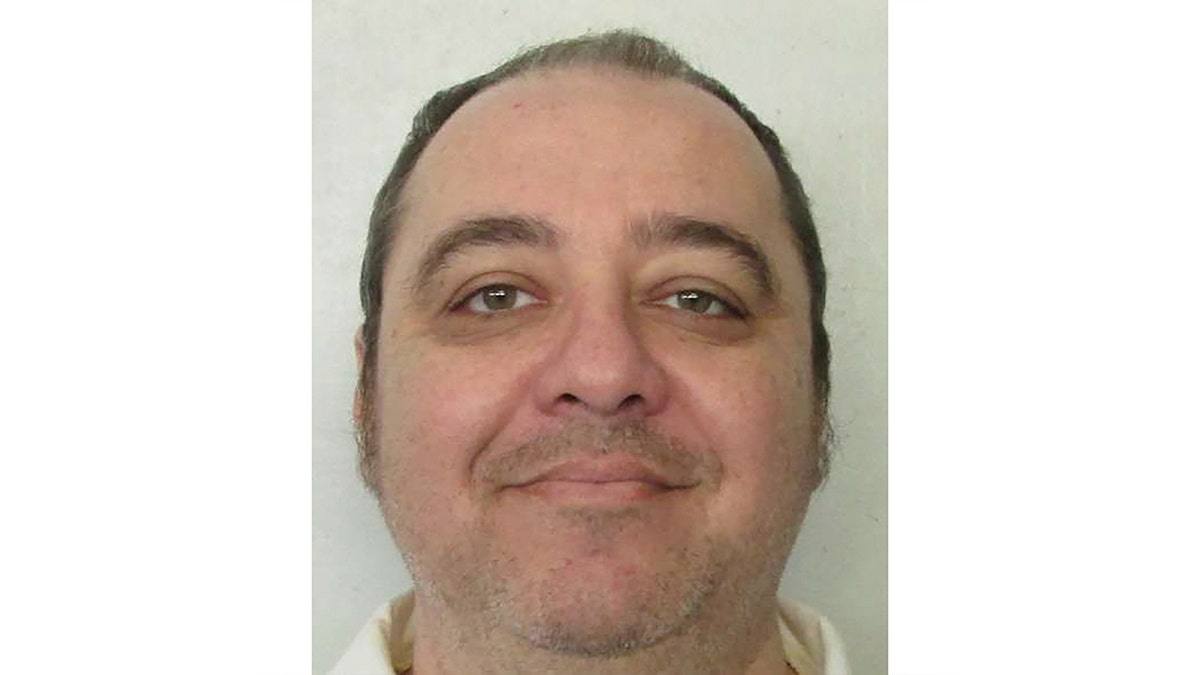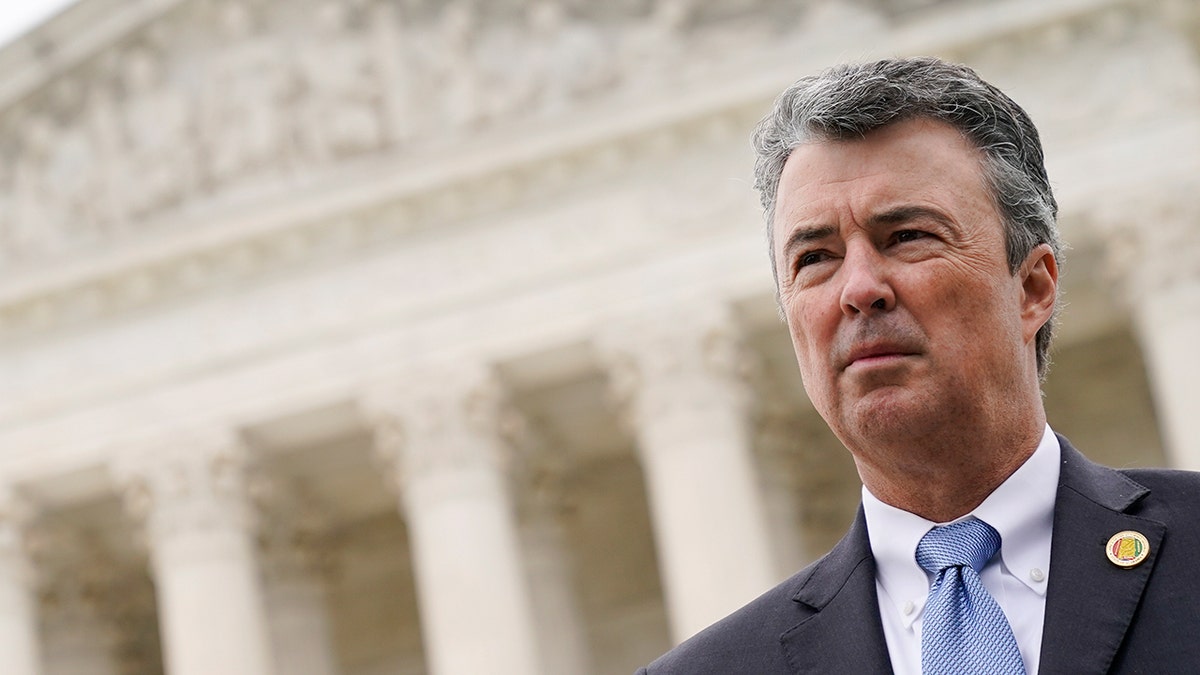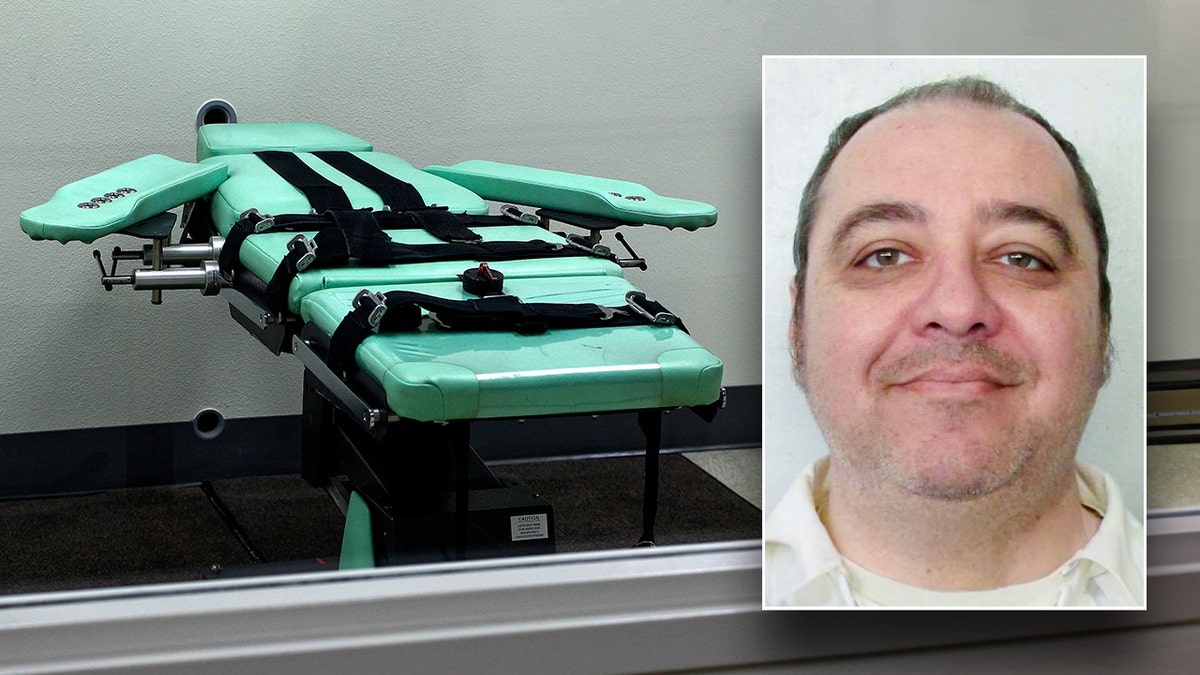Fox News Flash top headlines for November 2
Fox News Flash top headlines are here. Check out what's clicking on Foxnews.com.
Alabama's Supreme Court on Wednesday cleared the state to execute an inmate using nitrogen gas.
The state's attorney general’s request for an execution warrant for Kenneth Eugene Smith was granted in a 6-2 decision by an all-Republican court.
Last year, the Alabama Department of Corrections called off the execution of Smith when the people responsible for connecting two intravenous lines to him for lethal injection could not do so.
While the ruling moves the state closer to becoming the first to attempt execution with nitrogen gas, there is likely to be additional legal dispute on the matter. Alabama joins Oklahoma and Mississippi with authorization to use nitrogen hypoxia as a form of execution, although no state has yet attempted to use it.

Kenneth Eugene Smith was one of two men convicted in a 1988 murder-for-hire slaying of a preacher's wife. (Alabama Department of Corrections via AP, File)
IDAHO’S LONGEST-SERVING DEATH ROW INMATE TO BE EXECUTED NEXT MONTH
Smith was one of two men convicted in the 1988 murder-for-hire slaying of Elizabeth Sennett in Alabama's Colbert County.
"Elizabeth Sennett's family has waited an unconscionable 35 years to see justice served. Today, the Alabama Supreme Court cleared the way for Kenneth Eugene Smith to be executed by nitrogen hypoxia," Alabama Attorney General Steve Marshall wrote. "Though the wait has been far too long, I am grateful that our capital litigators have nearly gotten this case to the finish line."
Smith's legal team had urged the court to reject the execution request. They also previously accused the state of trying to move Smith to "the front of the line" for a nitrogen execution in order to moot Smith’s lawsuit challenging lethal injection procedures.

Alabama Attorney General Steve Marshall. (AP Photo/Patrick Semansky, File)
"The state seeks to make Mr. Smith the test subject for the first ever attempted execution by an untested and only recently released protocol for executing condemned people by the novel method of nitrogen hypoxia," Smith’s attorneys wrote in a September court filing.
"We are disappointed in this decision and will continue to pursue the enforcement of Mr. Smith’s rights through the judicial process," Smith's attorneys wrote in a statement to Fox News Digital. "It is noteworthy that two justices dissented from this Order. Like the eleven jurors who did not believe Mr. Smith should be executed, we remain hopeful that those who review this case will see that a second attempt to execute Mr. Smith — this time with an experimental, never-before-used method and with a protocol that has never been fully disclosed to him or his counsel — is unwarranted and unjust."
Under the proposed method, the inmate would be forced to breathe only nitrogen, depriving them of oxygen needed to maintain bodily functions and causing them to die. Nitrogen makes up 78% of the air inhaled by humans and is harmless when inhaled with oxygen. While proponents of the new method have theorized that it would be painless, opponents have likened it to human experimentation.

The state unsuccessfully attempted to put Smith to death by lethal injection in 2022.
CLICK HERE TO GET THE FOX NEWS APP
Chief Justice Tom Parker and Justice Greg Cook dissented in Wednesday's decision.
Prosecutors said that Smith was one of two men who were each paid $1,000 to kill Sennett on behalf of her pastor husband, who was deeply in debt and wanted to collect on insurance. The slaying, and the revelations over who was behind it, rocked the small north Alabama community. Sennett's husband killed himself a week later. The other man convicted in the slaying was executed in 2010.
The Associated Press contributed to this report.











































